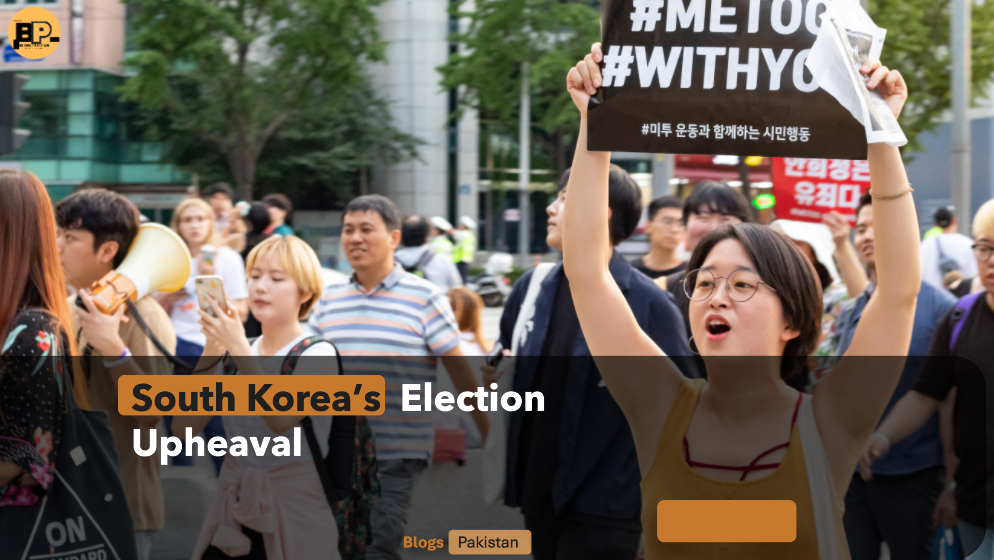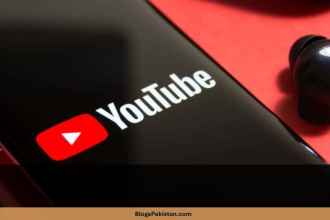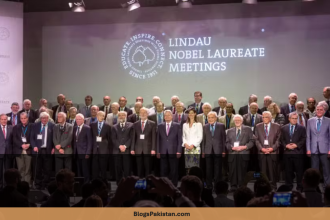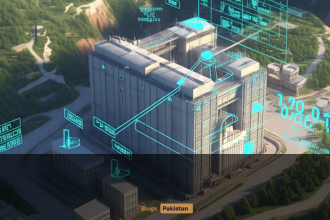With just weeks left before South Korea’s pivotal presidential election, the nation’s political landscape has been thrown into chaos. The conservative People Power Party (PPP) made a stunning move over the weekend, abruptly replacing its nominated candidate, Kim Moon-soo, with former Prime Minister Han Duck-soo—a decision sparking legal battles, public outcry, and questions about the integrity of the electoral process. Here’s a deep dive into the drama reshaping the June 3 election.
A Political Bombshell: Why the PPP Ousted Kim Moon-soo
In a rare and controversial step, the PPP revoked Kim Moon-soo’s candidacy despite his victory in the party’s primary last week. The decision, announced by interim leader Kwon Young-se, cited failed negotiations to unify behind a single candidate. Critics, however, argue the move reflects panic within the party as liberal rival Lee Jae-myung gains momentum in polls.
Kim, a former labor minister, had positioned himself as a steady hand amid South Korea’s ongoing political crisis. But PPP leadership deemed him insufficiently competitive against Lee, who leads the Democratic Party. “We needed a candidate who could rally broader support,” Kwon stated, framing the switch as a strategic necessity.
The abrupt change has exposed deep fractures within the conservative bloc. Kim, 73, condemned the decision as “illegal” and a betrayal of democratic principles. “The party’s democracy has died,” he declared, vowing legal action to challenge his removal.
Han Duck-soo: A Controversial Figure Enters the Fray
At 75, Han Duck-soo is no stranger to South Korea’s political arena. A seasoned bureaucrat, he has served as finance minister, trade minister, and ambassador to the U.S. under both liberal and conservative administrations. His bipartisan resume, however, has become a double-edged sword in the current climate.
Strengths and Scandals
- Experience: Han’s extensive governance background contrasts with Lee Jae-myung’s legal troubles, which include ongoing criminal trials.
- Controversy: As acting president following Yoon Suk Yeol’s impeachment, Han faces scrutiny for his role in December’s martial law declaration—a move that triggered nationwide protests and Yoon’s eventual ouster.
- Perceived Loyalty: Critics accuse Han of enabling Yoon’s authoritarian tendencies, a narrative the Democratic Party has seized upon to galvanize anti-conservative sentiment.
Han’s late entry as the PPP’s nominee underscores the party’s gamble: betting on his statesman image to counter Lee’s populist appeal.
Election Dynamics: Lee Jae-myung’s Surging Lead
Recent polls paint a grim picture for the PPP. A National Barometer Survey released this week shows Lee leading Han 44% to 34%. In a hypothetical matchup against Kim Moon-soo, Lee’s advantage widens to 14 points (43% vs. 29%). These numbers reflect widespread voter frustration with the conservative camp’s instability and Yoon’s tumultuous tenure.
Lee’s Legal Woes: A Wild Card
Despite his lead, Lee’s campaign isn’t without risks. The Democratic Party candidate is embroiled in multiple criminal cases involving corruption allegations—a vulnerability the PPP hopes to exploit. Yet, Han’s ties to Yoon’s martial law decree may neutralize attacks on Lee’s ethics, creating a race dominated by mutual recrimination.
The Legal Quagmire Election : Kim Moon-soo’s Fight for Reinstatement
Kim’s abrupt dismissal has ignited a legal firestorm. The former candidate argues that the PPP violated its own rules by revoking a nomination secured through a democratic primary. Legal experts are divided: some contend the party’s charter allows leadership to override primary results in “exceptional circumstances,” while others call the move a breach of procedural fairness.
The Democratic Party has amplified these concerns, accusing the PPP of “fraud” and “shattering internal democracy.” If Kim pursues litigation, the courts could delay or even invalidate Han’s nomination—throwing the election into further disarray.
Martial Law’s Shadow: How Yoon’s Downfall Shapes the Election
The specter of December’s martial law declaration looms large over the campaign. Yoon’s decision to suspend civil liberties, citing unspecified “national threats,” sparked mass protests and led to his impeachment. Voters now associate the PPP with constitutional overreach, a stigma Han struggles to escape.
Voter Sentiment: Anger Meets Apathy
- Protest Voting: Younger voters, particularly those in urban centers, view the PPP as out of touch with democratic values.
- Conservative Base: Rural and older demographics remain wary of Lee’s progressive policies but are disillusioned by the party’s infighting.
This polarization has created a volatile electorate, with undecided voters likely to determine the outcome.
The Road to June 3: Registration Deadlines and Campaign Strategies
Parties must finalize their candidates by Sunday, leaving the PPP scrambling to legitimize Han’s nomination. Key challenges include:
- Unifying the Right: Persuading Kim’s supporters to back Han despite the contentious nomination process.
- Rebranding Han: Distancing him from Yoon’s legacy while highlighting his administrative expertise.
- Countering Lee: Framing the election as a choice between stability (Han) and risk (Lee).
For Lee Jae-myung, the strategy is simpler: capitalize on PPP disarray and position himself as the antidote to conservative mismanagement.
Historical Parallels: When South Korean Parties Changed Horses Mid-Race
This isn’t the first time a South Korean party has swapped candidates ahead of an election. In 2002, the liberal party replaced frontrunner Chung Mong-joon with Roh Moo-hyun just weeks before the vote—a gamble that paid off with Roh’s victory. However, the PPP’s move carries higher stakes given the current climate of distrust.
Global Implications Election : A Test for Democracy in East Asia
South Korea’s election is being closely watched as a bellwether for regional stability. A Han victory could signal a return to technocratic governance, while a Lee win might embolden progressive movements across Asia. Meanwhile, the PPP’s candidate crisis raises concerns about institutional decay in one of the region’s most robust democracies.
What Voters Are Saying: Voices from Seoul to Busan
- Park Ji-hyun, 29, Seoul: “The PPP had years to govern. All they’ve given us is chaos. I’m voting for change.”
- Lee Min-ho, 58, Daegu: “Han understands the economy, but I worry he’s too tied to the past.”
- Kim Seo-yeon, 41, Busan: “This election feels like choosing the lesser evil. Where’s the vision?”
Final Countdown: Will the PPP’s Gamble Pay Off?
With campaigning set to intensify Election , Han Duck-soo must quickly consolidate support while battling perceptions of illegitimacy. His ability to address Yoon’s controversial legacy—and present a coherent policy platform—will make or break his bid. For Lee Jae-myung, maintaining momentum while navigating legal pitfalls is the priority.
As South Korea approaches June 3, one thing is clear: this election will redefine the nation’s political identity for years to come.










